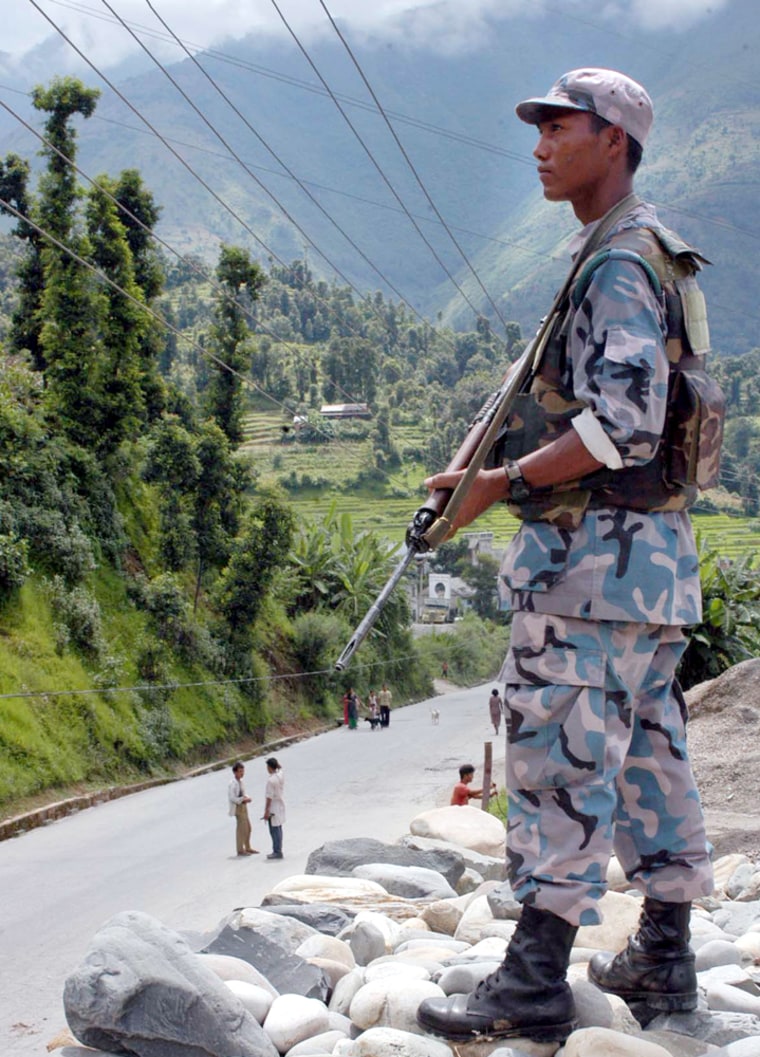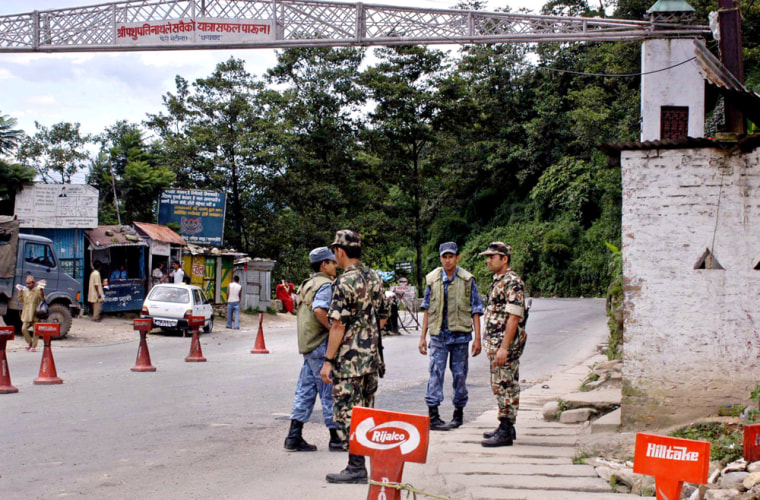Nepali troops were prepared to escort food shipments to Katmandu, after Maoist guerrillas failed to respond to a government offer to partially meet their demands for lifting a blockade, officials said on Saturday.
The armed escort of supplies to the capital was aimed at preventing panic buying during the unprecedented siege, which turned violent for the first time on Friday.
"If necessary, we will bring in essential goods in trucks escorted by the army," Dinesh Chandra Pyakurel, the most senior bureaucrat in the Supply Ministry told Reuters. "But that situation has not come yet."
Katmandu, a city of 1.5 million people, had stocks of petrol to last 10 days, diesel for 30 days and kerosene, used by the poor for cooking and heating, for three weeks.
He said stocks of food supplies, mainly distributed by the private sector, could last one month. "There is no situation for panic yet," he said.
His comments came a day after the government promised to provide information about leaders of student and trade unions linked to the Maoists, who rebels say have disappeared in the Himalayan kingdom's 8-year civil war.
The rebels called the blockade, which has been enforced mainly through fear of the Maoists trademark hit-and-run attacks, to press demands for investigations into the alleged killing of comrades, release of some jailed members and information about missing guerrillas.
Shooting, bombs blamed on rebels
On Friday, suspected rebels shot a policeman and set off two bombs.
Gunmen wounded a policeman guarding the Land Revenue Office in the heart of Katmandu and then put a bomb under a staircase at the agency.

Hundreds of people waiting to pay land taxes, transfer land ownership and settle disputes stampeded out of the building after the shooting, and the bomb exploded minutes later, witnesses said. “People were screaming and jumping over walls,” said Mukesh Sharma, a lawyer.
No serious injuries were reported from the blast, but doctors said the policeman suffered critical head and chest wounds from bullets.
Later, an explosion blasted an empty police post on the city’s outskirts, along a highway linking Nepal with Tibet. No one was hurt.
The insurgents have not set up a single roadblock. Despite beefed-up police patrols, the rebels’ threat to attack any vehicles on the roads has been enough to shut down nearly all civilian traffic.
A heavily guarded convoy of six buses left Thursday, apparently without incident, and at least three dozen buses and cars also made their way out of town under army escort Friday. But some taxi drivers who had been waiting to take passengers on the main highway changed their minds after the bombings.
“We could easily be the next victims. No one knows where the bombs will come from,” said driver Kami Gurung. “It is just not worth the risk.”
Roads are vital for Katmandu, which has no railroads. Most of the city’s food, fuel and other supplies are trucked in, and the blockade has left stores short of fresh produce and cooking fuel.
The Maoists have been fighting since 1996 to topple Nepal's constitutional monarchy and establish a communist republic in a revolt that has killed more than 10,000 people so far.
